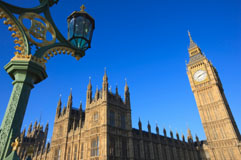Will Tougher Legislation Help to Prevent the UK Binge Drinking Culture?
 The imposition of the minimum 40p charge on a unit of alcohol in England has garnered mixed reactions. Some say this along with the rest of the proposed ‘Responsibility Deal’ is a sham and will do nothing to actually curb the so-called drinking epidemic or to improve public health. The more optimistic ones feel that it is a start and it is regulations like these that can help sort out the problem. But what exactly is the problem?
The imposition of the minimum 40p charge on a unit of alcohol in England has garnered mixed reactions. Some say this along with the rest of the proposed ‘Responsibility Deal’ is a sham and will do nothing to actually curb the so-called drinking epidemic or to improve public health. The more optimistic ones feel that it is a start and it is regulations like these that can help sort out the problem. But what exactly is the problem?
The problem is that people are increasingly consuming copious amounts of alcohol. The availability of extremely cheap spirits seems to be fuelling excessive drinking, which in turn gives rise to violence and antisocial behaviour in city centres across England. Go to any A & E department on a Friday or Saturday night and you’re sure to find evidence to support this notion.


 We live in the age of images and illusions, where two-dimensional airbrushed images of perfect men and women flash before our eyes constantly, whether it is on TV screens, on billboards or in magazines. As image and external appearance are perceived to be more and more important in our society, it is not surprising that cosmetic surgery is more popular today than ever before.
We live in the age of images and illusions, where two-dimensional airbrushed images of perfect men and women flash before our eyes constantly, whether it is on TV screens, on billboards or in magazines. As image and external appearance are perceived to be more and more important in our society, it is not surprising that cosmetic surgery is more popular today than ever before. If you ask any politician for their opinion on the effectiveness of the European Court of Human Rights, you are likely to see eyebrows rise and hear air being sucked over the teeth – the fact is that this international court is definitely not popular in the UK at the moment! Most main political parties are agreed that the European Court of Human Rights is actually proving to be detrimental to the security of the British public, and it seems apparent that our commitment to such international law needs to be considered very seriously in the future.
If you ask any politician for their opinion on the effectiveness of the European Court of Human Rights, you are likely to see eyebrows rise and hear air being sucked over the teeth – the fact is that this international court is definitely not popular in the UK at the moment! Most main political parties are agreed that the European Court of Human Rights is actually proving to be detrimental to the security of the British public, and it seems apparent that our commitment to such international law needs to be considered very seriously in the future. When it comes to the subject of illegal drugs in this country, it would appear that we all have a strong opinion to air on the matter. We are all filled with fear over the prospect of a child or other family member becoming embroiled in a drug-dependent lifestyle and therefore fully recognise why there are criminal sanctions in place to control things. However, the Advisory Council on the Misuse of Drugs (ACMD) fervently believe that prosecuting people who are found in possession of drugs is not the right way forward in this country, and they even recently furnished the Government with such a recommendation for decriminalisation.
When it comes to the subject of illegal drugs in this country, it would appear that we all have a strong opinion to air on the matter. We are all filled with fear over the prospect of a child or other family member becoming embroiled in a drug-dependent lifestyle and therefore fully recognise why there are criminal sanctions in place to control things. However, the Advisory Council on the Misuse of Drugs (ACMD) fervently believe that prosecuting people who are found in possession of drugs is not the right way forward in this country, and they even recently furnished the Government with such a recommendation for decriminalisation. We have previously reported on how the changes to legal aid and civil costs were likely to mean more people would have to act on their own behalf as litigants in person (“Going it Alone,” October 2011). The full extent of the reforms remains uncertain as the Government’s Legal Aid Sentencing and Punishment of Offenders Bill remains stalled in the House of Lords. Despite the uncertainty, organisations are continuing to ready themselves for substantial change. This month we will look at the recommendations of the Civil Justice Council made in November 2011 and consider the work of one of the partnering organisations – The Personal Support Unit (PSU) – which is likely to play an increasingly important role in the legal proceedings of the future.
We have previously reported on how the changes to legal aid and civil costs were likely to mean more people would have to act on their own behalf as litigants in person (“Going it Alone,” October 2011). The full extent of the reforms remains uncertain as the Government’s Legal Aid Sentencing and Punishment of Offenders Bill remains stalled in the House of Lords. Despite the uncertainty, organisations are continuing to ready themselves for substantial change. This month we will look at the recommendations of the Civil Justice Council made in November 2011 and consider the work of one of the partnering organisations – The Personal Support Unit (PSU) – which is likely to play an increasingly important role in the legal proceedings of the future..jpg) This month we had hoped to advise you about the current state of reforms to the civil litigation system. We are not able to do this, however, as the Legal Aid Sentencing and Punishment of Offenders Bill (LASPO) is having a rough ride through the House of Lords. For those of you who have studied on the Diploma course and developed an interest in how the Lords influences (and arguably, improves) our laws, this is a good bill to follow. You can find the latest details on the Parliament website, www.parliament.uk, under Bills & legislation.
This month we had hoped to advise you about the current state of reforms to the civil litigation system. We are not able to do this, however, as the Legal Aid Sentencing and Punishment of Offenders Bill (LASPO) is having a rough ride through the House of Lords. For those of you who have studied on the Diploma course and developed an interest in how the Lords influences (and arguably, improves) our laws, this is a good bill to follow. You can find the latest details on the Parliament website, www.parliament.uk, under Bills & legislation. The subject of three-parent in vitro fertilisation has come as somewhat of a surprise to me: I had no idea such a thing was scientifically possible! However, the Department of Health has apparently approached the fertility regulator to find out whether or not three-parent IVF may be an acceptable technique in the future and has therefore opened a public consultation over this issue.
The subject of three-parent in vitro fertilisation has come as somewhat of a surprise to me: I had no idea such a thing was scientifically possible! However, the Department of Health has apparently approached the fertility regulator to find out whether or not three-parent IVF may be an acceptable technique in the future and has therefore opened a public consultation over this issue..jpg) Considering that the current legislation regulating the scrap metal industry is contained in the Scrap Metals Dealers Act 1964, it is not difficult to imagine how this law has become flaccid and unfit for purpose in the twenty-first century. It is fair to say that when this statute was brought into law, there was nothing like as many thefts of metal across the country as there are today.
Considering that the current legislation regulating the scrap metal industry is contained in the Scrap Metals Dealers Act 1964, it is not difficult to imagine how this law has become flaccid and unfit for purpose in the twenty-first century. It is fair to say that when this statute was brought into law, there was nothing like as many thefts of metal across the country as there are today.  As many thousands of people look to return their unwanted Christmas gifts in January, it is definitely worth refreshing your memory on the Sale of Goods Act 1979 and how this affects your rights as a consumer. After all, when you think about it, this Act of Parliament focuses on an area of law that we are all involved with on an everyday basis.
As many thousands of people look to return their unwanted Christmas gifts in January, it is definitely worth refreshing your memory on the Sale of Goods Act 1979 and how this affects your rights as a consumer. After all, when you think about it, this Act of Parliament focuses on an area of law that we are all involved with on an everyday basis. When you think of writing a will, it is unlikely that what comes to mind are issues about cutting-edge technology, but that is exactly what some practitioners are now thinking about. Wills and probate, like any area of the law, must try to keep moving with the times. Changes in how society uses technology mean that lawyers need to be aware of new issues that affect how wills are prepared and what matters they should cover.
When you think of writing a will, it is unlikely that what comes to mind are issues about cutting-edge technology, but that is exactly what some practitioners are now thinking about. Wills and probate, like any area of the law, must try to keep moving with the times. Changes in how society uses technology mean that lawyers need to be aware of new issues that affect how wills are prepared and what matters they should cover.